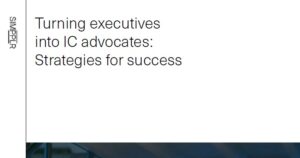5 ways to tap the power of frontline managers in your communications chain
Workgroup leaders are the connective tissue between your overall strategy and your rank-and-file employees. Three experts describe how they increased the communications effectiveness of their managers.

Frontline managers are an essential element in any organization’s communications chain.
That’s always been true, and it’s especially true this year, as organizations grapple simultaneously with a complex series of issues crises related to the COVID-19 pandemic and the fight for social justice.
Employees are working remotely. They’re stressed out. Exhaustion and burnout are rising. There’s never been more of a need to stay cohesive and underscore a values-driven and psychologically healthy work environment. Managers are the crucial link. Activating successful managerial communications is a daunting challenge, but there are specific actions you can take.
Ragan’s Communications Leadership Council asked three internal communications executives for their tips for activating their managers as organizational communicators. They were Tara Valentino-Maher, director of marketing corporate communications at the securities brokerage TD Ameritrade, Mary Katherine Krause, vice president of communications at the College of American Pathologists, and Carolina Mata, vice president of IBMer communication at IBM. They shared five internal communications challenges, and the ways in which they’re overcoming them. Among the tips were these:
- Ways to align managers with organizational values
- Which communications tools to use to empower managers
- How to handle difficult communications topics
- Best practices for communications clarity
- Proven approaches for manager training
In the end, these executives agreed that activating successful managerial communications is a complex, multifaceted challenge. It encompasses skill and consistent, empathetic communications. It includes aligning with organizational values. It requires training and support. Tools and counsel can be distributed via email newsletters, huddles, intranets and more. It should include measurement. But the payoff is enormous. If no one is doing these things now, and 80% are doing it afterwards, that’s a huge win.






